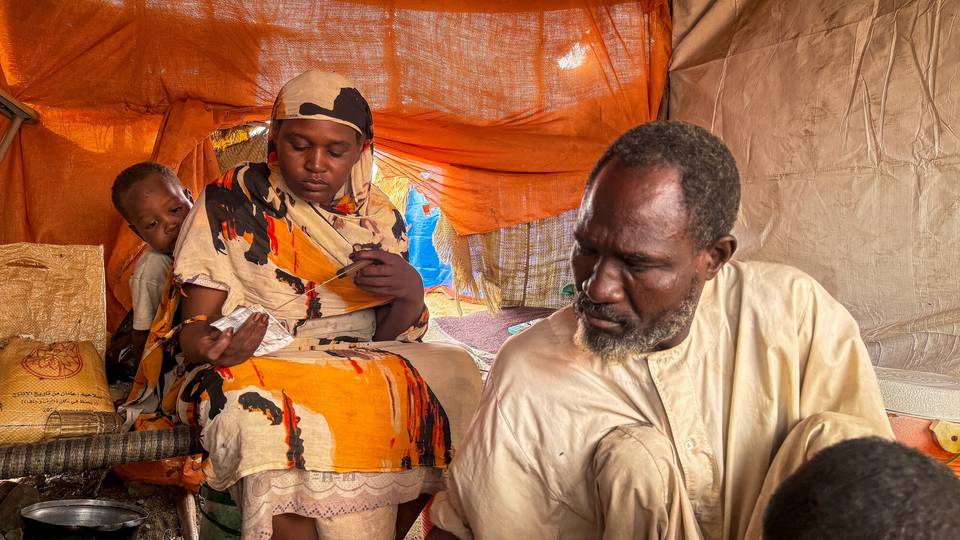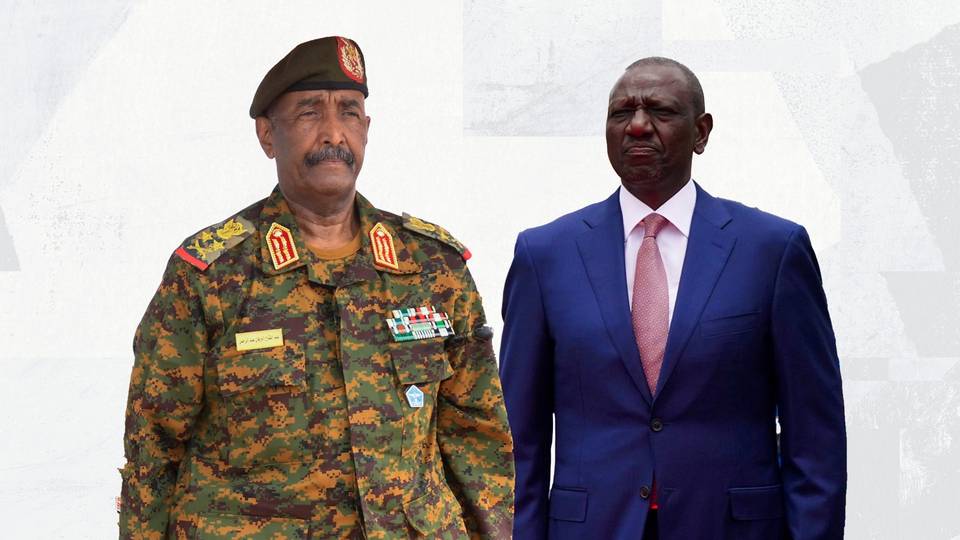Sport
Dollar
42,7031
0.23 %Euro
50,1678
0.06 %Gram Gold
5.898,4900
0.71 %Quarter Gold
9.753,2900
2.62 %Silver
84,7300
-2.7 %Sudan is on the brink of famine as international humanitarian aid agencies struggle with funding and access to the suffering millions trapped in the crucible of war.

By Abdulwasiu Hassan
The human cost of the ongoing conflict in Sudan has slipped almost unnoticed as global geopolitics dominates headlines and the public mind space, much to the chagrin of organisations like the Norwegian Refugee Council (NRC) that dubs it "the world's largest humanitarian crisis".
Reports from the ground suggest the suffering of millions of Sudanese caught in the crossfire between the country's army and the paramilitary Rapid Support Force (RSF) has worsened since fighting erupted on April 15, 2023.
More than 10 million people have been displaced in the cycle of regions, cities, towns, and villages changing hands between the warring factions. The death toll has crossed 20,000.
After visiting Port Sudan on the Red Sea coast and Darfur, NRC's secretary general Jan Egeland warned of an impending famine if the effort to get aid to people trapped in the country wasn't scaled up soonest.
"It is unimaginable that we are unable to help millions of starving people who are being violently attacked in this war that is spreading across Sudan," he tells TRT Afrika.
Under the radar
To date, the international community's conflict-resolution mechanisms haven't even been able to pass a resolution for a ceasefire in Sudan, let alone enforce it.

Fighting has, in the meantime, spread to at least 13 of the North African country's 18 states, worsening an already precarious humanitarian situation.
"Sudan is battling the largest displacement crisis on Earth. Eleven million people have been displaced within their country, and three million people are living as refugees in neighbouring nations. That's an astonishing 14 million people, all of whom fled their homes because of violence," says Egeland.
The spectre of starvation looming over a battered nation has made it worse for the teeming millions who have nothing to do with the war.
"We have to now handle the biggest hunger emergency anywhere in the world. Some 20 million people need humanitarian assistance. There is too little aid and too many obstructions of the aid," rues the NRC secretary general.
Against all odds
Droves of people have been deserting Darfur lately to escape violence and hunger as supplies run out and humanitarian aid barely trickles in.

"What I saw in Darfur is that people are fleeing every single day, especially El Fasher in northern Darfur – in part because of violence, but also for want of food and the lack of assistance in Geneina, which is the capital of West Darfur," Egeland tells TRT Afrika.
"I saw many areas destroyed, burned, looted, including our office at the Norwegian Refugee Council."
But despite the violence and uncertainty on the ground, aid agencies are not giving up on offering assistance to civilians bearing the brunt of the war.
According to Egeland, NRC provides aid in the southern, eastern, and northern parts of Sudan. This includes supplying subsidised flour sourced from Türkiye to about 350 bakeries in the affected areas for the benefit of the people.
"We are doing this either directly with our 400 aid workers or through some 50 partner organisations," he says.
A call for help
NRC is trying to increase the number of beneficiary bakeries receiving subsidised flour to 900, spread across Darfur and elsewhere in the country.

"This means half a million people can have subsidised bread daily through this operation," explains Egeland.
The larger challenge of staving off famine could prove trickier unless more help arrives, coupled with a global initiative to pressure the warring sides into allowing aid workers access to suffering civilians.
Comments
No comments Yet




















Comment